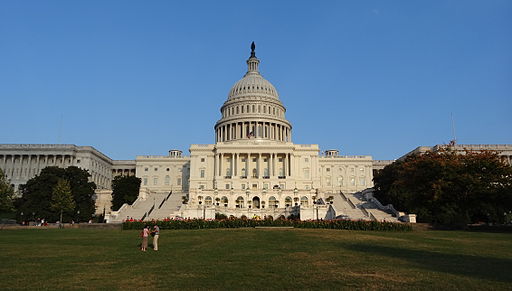|
Crystal ball predictions for cryptocurrency, gold, stocks, bonds and more. Original publication date: January 20, 2018. Will the Government Shutdown Prompt a Credit Downgrade? Not immediately, according to Fitch Ratings. In a statement issued on January 20, 2017, Fitch wrote, “Partial federal government shutdowns have occurred in the past and this shutdown does not have a direct impact on the sovereign's 'AAA'/Stable rating. Its main implication for the US's sovereign creditworthiness would depend on whether it foreshadowed a further destabilisation of US budget policymaking, or brinkmanship over the federal debt limit. The “x date” when the Treasury exhausts “extraordinary measures” to finance itself under the debt limit falls in late March/early April according to the CBO.” There are a lot of details in that sentence that should not be ignored. The first is that Fitch is reserving the right to review whether or not the government shutdown “foreshadowed a further destabilization of US budget policymaking.” It is difficult to know exactly what would prompt that conclusion. However, length of time is certainly at least one of the considerations. The government shutdown in October of 2013 lasted 16 days. It ended just days before the X date – when Treasury Secretary Jacob Lew would have run out of money in the U.S. treasury. A credit downgrade was averted. Secretary of the Treasury Mnuchin has complained that he is having to run the U.S. Treasury “like a piggy bank.” Fitch has made it clear in the past that the debt limit is the biggest threat to the U.S. AAA credit rating. On December 7, 2017, Fitch indicated in their Fitch 2018 U.S. & Canada Sovereign Outlook statement, “A failure to raise the US debt limit remains… the most significant short-term risk to the AAA rating.” The US “debt dynamics” could put pressure on the US creditworthiness in the medium to long term. The “debt dynamics” actually worsened by a trillion with the passing of the Tax Cut and Jobs Act. So, the fine print on what is keeping the U.S. credit rating at AAA above water is skating on thin ice, with spider cracks appearing. Unless something unpredictable and positive happens to dramatically reduce the $20.5 trillion U.S. public debt (over $66 trillion total US debt), the U.S. is facing a credit downgrade from Fitch Ratings and Moody’s Investor Services. The only question is when. (The U.S. was downgraded by Standard and Poor’s on August 5, 2011.) The U.S. dollar is still the world’s most widely used reserve currency. There’s just nothing suitable to replace the US dollar in that role, at this time. So, the U.S. is getting far more leniency than it would, if there were greater competition. What Happens If the U.S. Credit is Downgraded? Cryptocurrency 2017 saw a rush to cryptocurrency. However, in one month alone, Bitcoin is off by almost 50%. Having hit $20,000 in mid-December of 2017, Bitcoin was at $11,000 on January 19, 2018. With all of the cryptocurrency MLM scams going on, be very careful with cryptocurrency. The first thing is to know what you are doing, why you are investing and how you might trade or use cryptocurrency. The second step would be to create a plan that is well-diversified that may or may not include cryptocurrency. Then you must find the best, most reputable cryptocurrency trading platform and wallet. Lastly, do not bet the farm, do not just trust your friends or hand over any money before all of the previous steps have been thoroughly completed with eyes wide open. Do not have blind faith or trust anyone with this new investment strategy, as it is still the Wild West. Gold When Standard and Poor’s downgraded the U.S. credit on Aug. 5, 2011, gold soared to its all-time high of $1,895/ounce. Gold is down 30% since that high, to $1,331.50/ounce today. While there is potential upside with a gold investment, this should be done in balance with a well-diversified investment strategy. Those people who go all in, attempting to market time things, are often big losers. Stocks Stocks are at an all-time high, with the added risk that they have gone nine years without a correction. The last two times the U.S. economy went 8 years without a correction, stocks lost more than half. If you are banking your future on buy and hold, and stocks rising without any correction, that’s been a very bad strategy in the new Millennium. Warren Buffett currently has over $100 billion on the sidelines due to the overvaluation of the stock market. (Email Heather @ NataliePace.com for a link to the previous blog that I did on this.) Bonds With interest rates on the rise and credit risk higher than its ever been, bonds are vulnerable. Warren Buffett has said that bonds and Treasury bills are even more overvalued than stocks. Getting safe, diversified, hot, protected and even saving thousands annually in your budget with smarter energy, budgeting and investing choices, is easy as a pie chart. These time-proven strategies earned gains in both of the last two severe downturns and have outperformed the bull markets in between. Wisdom is your best strategy. And now is the best time to get it – certainly before X date in late-March. There are still a few seats available at the Valentine’s Retreat in Santa Monica, California, Feb. 10-12, 2018. Email Heather @ NataliePace.com to learn more now. 22/1/2018 05:27:42 pm
H.R. 195 stops the #governmentshutdown2018 and funds continuing appropriations through Feb. 16, 2018. Comments are closed.
|
AuthorNatalie Pace is the co-creator of the Earth Gratitude Project and the author of The Power of 8 Billion: It's Up to Us, The ABCs of Money, The ABCs of Money for College, The Gratitude Game and Put Your Money Where Your Heart Is. She is a repeat guest & speaker on national news shows and stages. She has been ranked the No. 1 stock picker, above over 830 A-list pundits, by an independent tracking agency, and has been saving homes and nest eggs since 1999. Archives
July 2024
Categories |








 RSS Feed
RSS Feed